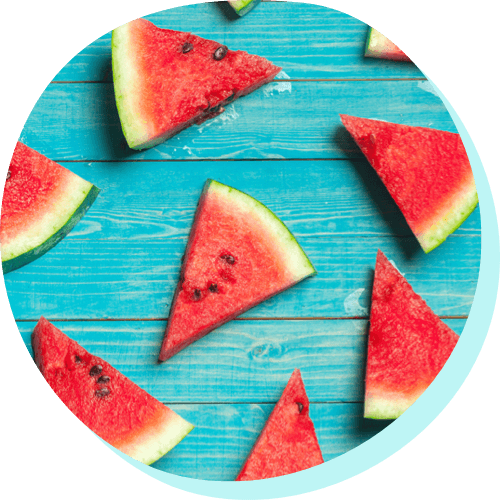The human body is home to trillions of tiny organisms called microbes or microbiota, including bacteria, fungi, parasites, and viruses.1 These microorganisms that live throughout the body and help support bodily functions are referred to as the “human microbiome”.1
Each person’s microbiome is unique and can be affected by the microorganisms they were exposed to as an infant as well as diet and environmental conditions later in life.1 The microbiota, the microorganisms that compose the microbiome, play a number of roles in the body including stimulating the immune system.1
The Role of the Gut Microbiome
There are 40 trillion microbiota in the human gastrointestinal tract alone.2 The gut microbiome impacts digestive processes such as breaking down food compounds and synthesizing vitamins and amino acids.1 But it also impacts bodily functions beyond the digestive tract.
The following key health functions can be at least partially attributed to the gut microbiome:
Reducing Gut Issues
The gut microbiome may help relieve symptoms of digestive issues, such as constipation and irritable bowel syndrome (IBS). Some studies with probiotics suggest that they can improve symptoms of IBS, abdominal pain, bloating and flatulence. More studies are needed to confirm these findings.3
Immune Function
The gut microbiome helps defend the body against harmful bacteria by secreting antimicrobial substances in the digestive system.4
Energy Production
The gut microbiome helps modulate our energy and increases our ability to gain energy from what we eat.5
Neurotransmitter Production
Microbes in the gut help produce neurotransmitters and other molecules that let the gut communicate with other areas of the body.6
Vitamin Synthesis
The gut microbiome supports the synthesis of vitamins B, B12 and K.7
Digestion
Gut microbes have evolved over time to help us digest food effectively.8
How to Support a Healthy Gut Microbiome
When it comes to your gut microbiota, the substances that you feed your microbiome impact its health—which in turn impacts your overall health!9
The two primary ways to keep your gut microbiome healthy and balanced are to help the organisms grow by feeding them prebiotic foods and to support your microbiome by feeding it living microorganisms, called probiotics.9
Probiotics
A probiotic contains a living organism such as bacteria that can help support your gut microbiome’s levels of “good” bacteria.9 Probiotics are available in food and dietary supplements.9 You might already be familiar with the concept of probiotics as they relate to foods like kombucha and kimchi. Fermented foods have become quite popular recently for their probiotic qualities.
Fermented food sources of probiotics include:9
- Yogurt
- Sauerkraut
- Kombucha
- Kimchi
If these probiotic-rich foods aren’t part of your regular diet, you can also take a probiotic supplement.9 Talk to a doctor or dietician about how to modify or supplement your diet to include more probiotics.
Prebiotics
Unlike probiotics, prebiotics are not living organisms—rather, they act as food for healthy gut microorganisms and help them flourish.9 Prebiotics are a specific type of plant fiber and are available in numerous fruits and vegetables. Prebiotics can be found in the following foods:1
- Garlic
- Onions
- Leeks
- Asparagus
- Jerusalem artichokes
- Dandelion greens
- Bananas and other fruit
- Seaweed
- Beans
- Whole grain wheat
- Oats
- Barley
Like probiotics, you can also take a prebiotic supplement in addition to modifying your diet.9
How Much Does Diet Impact the Gut Microbiome?
While every person has their own one-of-a-kind microbiome, research indicates that diet plays an important role in maintaining a healthy and balanced gut microbiome.1 Eating a high-fiber diet is one way to support your good gut bacteria and help limit the amount of harmful bacteria that are able to grow.1
There is truth to the old saying, “You are what you eat”; studies have shown that eating a diet rich in fruits, vegetables, whole grains, and nuts—as well as prebiotics and probiotics can help keep your gut microbiome healthy.1
Other Ways the Gut Microbiome Can Impact Overall Health
Beyond the gut microbiome’s role in digestive health, researchers are still understanding the microbiome’s broader role in health and the problems that can occur when the microbiome is interrupted.1
The gut is connected to the central nervous system via the vagus nerve and endocrine and immune signaling mechanisms. Some research indicates that there is a connection between gut bacteria makeup and brain chemistry.6 This exciting connection--and how the two systems communicate--is still being studied but opens up potential pathways for the treatment of mood disorders.6
If you’re interested in supporting a diverse gut microbiome, talk to a doctor or dietician about your lifestyle habits and what you can do to support gut health. For additional resources on health and digestion, check out our articles on living with gas and bloating.
- The Microbiome. Harvard T.H. Chan School of Public Health. https://www.hsph.harvard.edu/nutritionsource/microbiome/. Accessed 4/20/22.
- Revised Estimates for the Number of Human and Bacteria Cells in the Body | PLOS Biology.
- Efficacy of Prebiotics, Probiotics, and Synbiotics in Irritable Bowel Syndrome and Chronic Idiopathic Constipation. American College of Gastroenterology | ACG. https://journals.plos.org/plosbiology/article?id=10.1371/journal.pbio.1002533. Accessed 1/26/23.
- Innate immune recognition of the microbiota promotes host-microbial symbiosis – PubMed. https://pubmed.ncbi.nlm.nih.gov/23778794/. Accessed 1/26/23.
- An obesity-associated gut microbiome with increased capacity for energy harvest – PubMed. https://pubmed.ncbi.nlm.nih.gov/17183312/. Accessed 1/26/23.
- Vagal Pathways for Microbiome-Brain-Gut Axis Communication | SpringerLink. https://link.springer.com/chapter/10.1007/978-1-4939-0897-4_5. Accessed 1/26/23.
- Intestinal flora and endogenous vitamin synthesis – PubMed. https://pubmed.ncbi.nlm.nih.gov/9167138/. Accessed 1/26/23.
- PASSCLAIM1—Gut health and immunity | SpringerLink. https://link.springer.com/article/10.1007/s00394-004-1205-4. Accessed 1/26/23. https://journals.lww.com/ajg/Abstract/2014/10000/Efficacy_of_Prebiotics,_Probiotics,_and_Synbiotics.8.aspx Accessed 1/26/23.
- Prebiotics, probiotics and your health. Mayo Clinic. https://www.mayoclinic.org/prebiotics-probiotics-and-your-health/art-20390058. Accessed 4/20/22.





